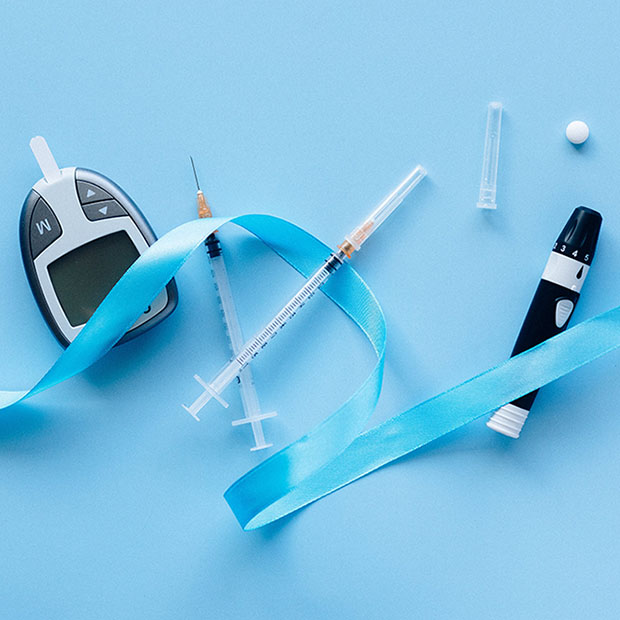The Ways Diabetes Affects Eye Health

If it isn’t carefully controlled, diabetes can cause a wide variety of secondary health problems.
Several of those specifically affect the eyes, to the point where diabetes is one of the leading causes of blindness worldwide. All types of diabetes come with a risk of sight-threatening conditions like diabetic retinopathy, diabetic macular edema, cataracts, and glaucoma.
The Differences Between Types of Diabetes
The three types of diabetes might not work the same way, but they still cause potential problems for eye health. Type 1 diabetes, typically diagnosed early in life, happens when the pancreas cannot produce insulin. The much more common type 2, typically diagnosed in adulthood, happens when the body cannot efficiently use insulin to regulate blood sugar. The third type is gestational diabetes, which affects some pregnant women. It is essentially temporary type 2.
Diabetic Macular Edema and Retinopathy
A big reason diabetes has such an impact on eye health is that higher blood sugar makes the blood more acidic, which can erode blood vessels. This is a particularly serious problem for the eyes, where the retinas are nourished by tiny, delicate capillaries. More acidic blood can weaken those capillaries enough that they begin leaking blood into the eye (which leads to dark blotches or floaters across the field of vision). That’s what diabetic retinopathy is.
The body attempts to fix the problem by growing new blood vessels, but these vessels are unstable and even more prone to leaking. In 10% of diabetic retinopathy cases, the buildup of fluid in the macula (the part of the retina that gives us our detailed central vision) creates distortions and washes out the colors. This is macular edema, which may require surgical correction.
Diabetes and Cataracts
Diabetics have quintuple the risk of developing cataracts. Higher blood sugar can cause the lens of the eye to swell and accumulate more opaque proteins until it takes on a cloudy appearance. Fortunately, cataracts are one of the most treatable sight-threatening conditions. Modern cataract-removal surgery can completely restore vision lost to cataracts.
Diabetics Are Vulnerable to Glaucoma
You may not realize it, but the fluid in our eyes doesn’t simply stay put forever. It cycles in and out to stay fresh, which is crucial for good eye health. When that cycle is interrupted, the result is glaucoma. Pressure from the excess fluid can build up against the optic nerve and cause permanent damage, blindness included. The symptoms of this disease aren’t always obvious early on, which is why regular eye exams are so critical — particularly for diabetics.
Protect Your Eyesight With Regular Eye Exams
The best weapon against sight-threatening conditions is early diagnosis from the optometrist. Some of these conditions are irreversible and untreatable, but they can be slowed and controlled if we catch them early on. If you have diabetes, we would probably recommend that you come in for eye exams a little more often than we would otherwise.